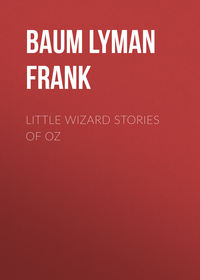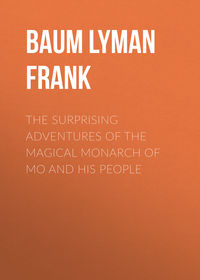
The Daring Twins
Saturday morning the bank was very busy. Eric sat in Mr. Boothe’s cage and waited upon the customers in a very business-like manner. He was so quick and accurate in handling the money, with a pleasant word for each one who approached his wicket, that when Mr. Spaythe came in now and then to see that everything was progressing properly the boy won his father’s gratified praise.
At one o’clock they closed the doors, as was usual on Saturdays, and it did not take Eric long to arrange his cash, pile it away in the safe and turn his statement of the day’s transactions over to Phil.
“What, through already?” asked his father, coming in at that moment.
“Yes, sir. Here’s the balance sheet you asked for, all made out correctly. I’m in a bit of a hurry, as I’ve arranged to go to St. Louis for over Sunday.”
Mr. Spaythe frowned.
“I did not know of this plan,” he said curtly. “Why are you making the trip, Eric?”
“To visit Ned Thurber. He has invited me to stay with him, so it will only cost me railroad fares. I’ll be back in time for work on Monday, sir,” he added carelessly.
Mr. Spaythe stood regarding his son silently for a moment. He reflected that the boy had behaved admirably these past few days, filling Mr. Boothe’s place quite effectively. The banker was also engaged with other matters that required his immediate attention. So he said:
“Very well. Go, if you wish to.”
Eric accompanied his father into the private office, merely bestowing upon Phil a nod of farewell. It was rather mean of him to take a vacation and throw all the work of bookkeeping upon young Daring, but Eric was not noted for his consideration to others.
Pausing before his father’s desk he said in a hesitating way:
“I suppose it’s all right to leave Phil in charge of the cash?”
Mr. Spaythe turned upon him, sharply.
“Why not?” he said. “The Darings are honest enough. I would have trusted his father with every penny I owned, at any time.”
“Oh, I suppose Phil’s safe,” returned Eric, carelessly. “But he’s a new clerk, and there’s a lot of currency on hand to carry over Sunday. So the thought struck me – ”
He paused, for his father was paying no attention to what he said. Instead, his practiced eye was shrewdly scanning the balance sheet. It told the amount of cash on hand in bills, gold and silver, and recorded all checks, drafts and notes deposited during the day. Finding the tally correct Mr. Spaythe laid down the paper and turned again to his son.
“I’ll trust Phil,” he said.
Eric went away, smiling to himself. “Just what I wanted,” he muttered. “The gov’nor will remember this conversation afterward.”
Passing down the street he told every acquaintance he met that he was off for St. Louis by the four o’clock train. At the station he made his journey known to the group of loungers and shouted a rather boisterous good-by when the train drew in and he boarded it. He even waved his hat from the back platform until he had passed out of sight. Among those who thus watched Eric’s departure was Donald Daring, who announced the fact at supper that Eric Spaythe had gone to St. Louis by the four o’clock train.
“Must you work at those dreadful books to-night, Phil?” asked Phœbe.
“Only for an hour or so, dear. I put in such steady work this afternoon that a little more will get things in shape.”
“I’ll go down with you, then, and keep you company,” she announced.
As they walked along the street together in the cool of early evening Phil was very thoughtful. Finally, he said to the girl:
“I don’t believe Eric has gone to St. Louis, Phœbe.”
“Why, he must have gone!” she exclaimed. “Don saw him on board the train.”
“I know; but in spite of that I’ve a queer feeling – a sort of suspicion – that he’s playing us a trick.”
“Have you, Phil? But why?”
“I can’t explain it. You see, since Boothe has been away Eric has been free to do as he pleased. He’s in desperate need of money, just now; but, although I’ve been on the watch, not a single crooked transaction have I been able to discover – except one.”
“What was that?”
“I found on his desk yesterday a scrap of paper with my name scribbled over it in many styles of handwriting. Anyone seeing it would have thought I had been trying to create a lot of different signatures. I tore the paper in two, crumpled it up, and tossed it in the waste basket. But, afterward, I decided the thing ought to be burnt, and searched for the scraps. They weren’t among the other papers, for I went through the entire contents of the basket. Some one had taken them, and it could be no one but Eric.”
Phœbe looked grave at this.
“What does it mean, Phil?”
“I’ve tried to think. I know of two or three forged deposit slips, aside from that one of Mr. Martin’s. Then there was the forged check of Mrs. Randolph – I’m positive it was forged. These things are sure to be discovered some day, and then the charge of forgery and embezzlement will lie between Eric and me.”
“Oh, Phil!”
“As Eric is Mr. Spaythe’s own son it will be easy for him to accuse me. If I tell Mr. Spaythe what I know he will ask why I didn’t report it at the time. I’m in a net, Phœbe, and Eric knows it. If he can save himself at my expense, he won’t hesitate.”
“I see!” she cried, clasping her hands tightly. “Isn’t it dreadful, Phil?”
“That is why I now suspect that Eric is up to mischief. It surprised me that he told his father so bluntly he was going to St. Louis. It would be better policy for him to keep quiet about the trip; but he risked Mr. Spaythe’s anger with unusual boldness. And he took pains to advertise his going to the whole town – even to let people see him ride away in the train.”
“What could be his object?” inquired Phœbe, much perplexed.
“To be able to prove an alibi, I imagine.”
The twins walked on in silence for a time and were just passing the railway station when Phil had an idea.
“Come in with me,” he whispered, and followed by Phœbe he walked calmly up to the agent’s window. The man was not busy, as no trains were due at this time.
“Hello, Wakefield,” called Phil, genially.
“Hello, Phil. Good evening, Miss Daring,” responded the agent, recognizing them.
“I came in to pay for Eric’s ticket to St. Louis. He happened to be short of currency, but said you’d let him have the ticket, and I could drop in and settle for it to-night.”
Wakefield seemed surprised.
“Mr. Spaythe didn’t buy a through ticket,” he explained. “He only took one to Canton. Said he’d buy his ticket and sleeper from there on. I remember thinking that was a queer way to do. If he was short of money, Eric knew I’d help him out.”
Phœbe trembled as she pressed Phil’s arm.
“Why, it’s all right, then, Wakefield,” said Daring, calmly. “Probably he changed his mind, and in that case I don’t owe you anything.”
“Not a cent. Good night, Phil. Good night, Miss Daring.”
“Good night,” they answered and walked away.
“You see, I was right,” said the boy, when they were on the street again. “Canton is only ten miles away, and Eric plans to leave the train there and come back.”
“When?”
“Some time to-night. He means to rob the safe and get away with the money. That will implicate me, you see, as I’m the only one except Mr. Spaythe and Boothe that knows the combination – and the cashier is sick in bed.”
“Oh, Phil! I’m sure your suspicion is too horrible to be true.”
“Why, it’s so simple that it must be true. Under the circumstances it is the natural thing for Eric to do. He isn’t so very clever, although perhaps he thinks he has laid a deep plot to ruin me. The queer thing about it is that it’s liable to succeed.”
They had reached the bank now. Phil opened the side door and ushered Phœbe into the large back room where he did his work. He turned on the electric lights, pulled down the shades to all the windows and then opened the safe and got out the books. Phœbe, perched upon Eric’s vacant stool, watched him thoughtfully. Her face was pale as wax and she had nervous, trembling fits that she could not control.
“I’m glad I am with you,” said she, presently. “If you are accused, I can swear you did not touch the money.”
Phil bent over and kissed her, but made no reply. Putting all his mind upon the books he methodically pursued his work for an hour or so, until all the entries had been made and his task finished. Then he closed the ledgers with a sigh of relief, put them away, and locked the safe.
“Who knows,” he said, turning to Phœbe with a wan smile, “but that this is the last bit of work I shall do for Spaythe’s Bank? If my suspicions are correct, on Monday morning the safe will be found to have been robbed, and then I must face accusations and probable disgrace.”
By this time the girl had recovered most of her composure. She was still pale, but had been busily thinking during that tedious hour, trying to find some way to save her twin brother.
“Do you know exactly how much cash is in that safe now?” she asked.
“Of course, Phœbe. It is all entered upon the books, in black and white, and Mr. Spaythe has a copy of the amounts, besides.”
She looked carefully around the room. At the very back of the building, facing the safe, was one window which opened upon an unused yard at the rear. The window was just then covered with a thick shade. Phœbe took the desk shears, walked deliberately to this window, and punched two small holes in the shade.
“What on earth are you doing?” asked her brother, in amazement.
“Phil, we’re going to play we’re detectives, you and I. Go outside, and around to this window, and find out if you can see the safe through the holes I have made. If not, I must make them larger.”
Phil obeyed, still puzzled as to her meaning. When he returned to her, he reported that the holes were about on a level with his eyes, when he stood in the back yard, and that the safe was plainly visible through the tiny openings if one stood with an eye close to the windowpane.
“Very well,” said she, nodding with satisfaction. “What time is it now?”
“Nearly ten.”
“We shall have a long wait, but we mustn’t mind that. Let us go, now.”
Phil waited until she reached the door; then he put out the lights and joined her. As they passed out he locked the door and put the key away in his pocket.
“What now?” he asked.
“Let us take a walk up the street, for a block or two,” she replied, in a whisper; and he followed her obediently. Although it was Saturday night, this part of the town was practically deserted. There was a light in the laundry office across the way and a girl stood in the door of a candy shop and nodded to the twins vacantly. Half a block up the street was the printing office, but the lights in it went out before they reached it, and Mr. Fellows, the editor, gave the Darings a pleasant “Good night!” as they passed by while he was locking the door.
Phœbe crossed over into the next street, which was merely a lane, and turning about began to retrace her steps. Phil clung to her arm and let her lead him. Here there was no light to guide them save the dim glow of the stars. The moon would not be up for some hours yet. They had to feel their way carefully for a time, but ere long they had reached a position in the rear of the bank and entered the unused yard. From a pile of boxes dumped behind a neighboring grocery Phil brought two to serve as seats, for now he guessed Phœbe’s purpose and fully approved the venturesome undertaking.
They sat in silence for a time, their backs against the brick wall of the bank.
“How will Eric get back from Canton?” the girl inquired, musingly.
“I don’t know. He might drive over, and return the same way. Let me see; there’s another train to St. Louis that passes here at one-thirty. It doesn’t stop at Riverdale, but it does at Canton.”
“That’s it!” she exclaimed, eagerly. “That’s his plan, Phil, I’m sure. Eric will get a livery horse at Canton, drive over here, and return in time to catch the one-thirty flyer for St. Louis. It will be due at Canton at about two o’clock, won’t it?”
“Sooner than that. The flyer will make the ten miles in fifteen minutes, easily.”
“But it will take Eric an hour and a half to drive it, in the night. That means he must get here, do what he has to do, and leave by twelve o’clock – or soon after. Why, we won’t have long to wait, after all.”
“Not if we are figuring right, Phœbe. After all, this is only guesswork on our part.”
“I’m sure we are right, Phil. As you say, the natural thing for one in Eric’s position to do is just what we expect he will do. Let us be patient, and we will soon know the truth. If nothing happens by half-past twelve, then we may go home and go to bed.”
“And rest in peace,” he added, with a light laugh that was not mirthful. “I hope that will be our fate.”
“So do I, Phil – with all my heart.”
It was a tedious wait, however, for they were keyed up to a high pitch of excitement and the minutes seemed to drag with teazing languidness. But suddenly, as they talked together in soft whispers, Phœbe glanced around toward the window and then seized Phil’s arm in a warning grasp. The back room of the bank was lighted.
The girl put her eye to one peephole and the boy looked through the other. They saw Eric standing in the room and glancing about him with fearful, yet keenly observant eyes. The inspection seemed to satisfy him, for after tying his handkerchief over the one electric light globe which he had ventured to turn on, in order to dim the strength of its rays, he went straight to the safe and began to fumble with the combination. A few moments later the heavy door swung open.
Again Eric glanced around, but could not know that two intent eyes were regarding his slightest movement. He hastily turned over the packets of bills until he found the one he desired, which he thrust into an inner pocket. Then he took a canvas sack, filled with gold, and this filled his coat pocket completely and had to be crowded in. The next moment he closed the door and set the lock.
It was all done so quickly that Phœbe found she had held her breath during the entire scene. While she panted with excitement and her heart fluttered wildly, Eric removed his handkerchief from the globe and turned off the light.
They both listened eagerly now, but so stealthy were the young man’s movements that no further sound reached their ears. He must have effected his escape from the bank a long time before the twins ventured to stir.
“Phœbe,” said Phil bitterly, “it is evident that I’ve stolen a stack of bills and a bag of gold. The fact can easily be proven against me, anyhow.”
“Not yet,” returned the girl, in a firm, decided tone. “Come with me, Phil.”
She began to make her way around the building to the side door.
“What are you going to do?” he asked.
“I’m going to block Eric’s wicked conspiracy and save you,” she replied. “Open that door, and let us go in.”
CHAPTER XVIII
A SISTER’S LOVE
Phil looked up and down the dark, deserted street. Eric had made off so quietly that not a footfall had been heard. But no one was abroad to see him, however much noise he might have made.
The back room of Spaythe’s Bank was witnessing a succession of curious scenes this eventful night. Phil had opened the safe again and was counting the money. It was a long count, and must needs be accurate; but Phœbe, now cool as ice, helped him in her methodical way and it was not necessary to inspect more of the currency than the packets of bank notes and the gold.
“Whew!” whistled Phil, when the final figures had been made. “Eric wasn’t at all bashful, was he? He grabbed more than three thousand dollars!”
“Three thousand, three hundred and ninety,” repeated Phœbe, jotting down the exact amount on a slip of paper. “All right, Phil; that is what we wanted to know. Now, put this dreadful stuff away.”
He complied. There was a queer feeling in the young fellow’s chest, as if iron fingers were gripping his heart. His worst fears had been realized and he had become the innocent victim of his former friend’s diabolical scheming.
As the Daring twins walked home together through the still night, arm in arm, they exchanged few words. Phil reflected that his business career was practically ruined. Here in Riverdale, his old home, he would be scorned and reviled as a common thief, and wherever he might go in the big outside world his disgrace would be sure to follow him. And what of Eric Spaythe, the false friend who had planned his downfall and would profit by it? With means to pay his debts, and so prevent his father’s knowledge of his past extravagance, Eric would doubtless be more cautious in the future. In time he might become the proprietor of the bank he had to-night so cleverly robbed. As for the false entries on the books, made to cover the minor thefts that had preceded this coup, all evidence would point conclusively to Phil Daring as the culprit. That poor and struggling youth was to become the scapegoat to shield Eric Spaythe, the rich banker’s son.
Phil groaned in spirit, but believed himself to be absolutely helpless.
Phœbe, on the contrary, had recovered her cheerfulness, and as she kissed her twin good night in the hall she whispered:
“Forget about Eric, dear. There’s nothing to worry about, so try to get some sleep. Now that we know the truth, and just what to expect, it will be easy to save you from this contemptible plot.”
Phil clasped the girl close in his arms. It was good to feel that Phœbe, the one person he loved most in all the world, knew his innocence and believed in him. He must be brave and face the future calmly, for her sweet sake.
In his room he looked at his watch. Two o’clock. By this time Eric was well on his way to St. Louis. Phil sighed, went to bed, and having a clear conscience was presently sound asleep.
Phœbe pleaded a headache next morning and did not go to church with the others. Phil, solemn eyed and with careworn features, accompanied Cousin Judith and the children and did his best to keep his thoughts on the sermon.
From her window Phœbe endeavored to watch the movements of old Miss Halliday, but found the woman keeping close to the room in which Gran’pa Eliot was confined. Perhaps she was engaged in her morning’s work, but strangely enough the chickens had been neglected and were plainly calling for food and water.
In order to ease the nervous strain of waiting Phœbe moved softly around the rooms occupied by the Darings and removed all the keys she found in the locks. Having carried these to her room she began trying them in the lock of the door that connected old Elaine’s chamber with her own. She moved carefully and silently, but to her despair none of the keys would fit. A second time she tried them, with no better success. While engaged in replacing the borrowed keys she happened to think of a big bunch of old keys hanging in the closet of the room occupied by Sue and Becky. She readily found this bunch, and with it hurried back to her chamber. One by one the keys were tried and gradually her heart sank as they proved to be too large or too small. There were now but three left on the bunch and she was crouching on her knees before the door when suddenly she heard Elaine enter the other room.
To her astonishment the woman was sobbing and muttering in the same breath, and seemed to be laboring under great excitement.
“It can’t be!” Phœbe heard her say again and again. “It can’t be. No, no, no! – it can’t be.”
Up and down she paced, and finally the girl heard her throw herself upon the bed and give way to a violent outburst of sobbing.
Phœbe dared not move. Her limbs were cramped and numb, but she sat crouching beside the door until gradually Miss Halliday became more quiet and rose from the bed.
“One thing is certain,” muttered the woman in a firmer tone. “No one shall know!”
Again she paced the floor, by degrees recovering her wonted composure. The sobs and mutterings ceased. At last she left the room, and Phœbe breathed freely once more. Then the girl glanced at the bunch of keys she held. With those three that still remained untried lay her sole chance of saving Phil’s honor.
The first was rusty and too big for the lock. The second turned easily, and with a sharp click the bolt flew back. Then Phœbe dropped her head in her hands and began to cry. The transition from despair to joy had been so sharp that it unnerved her; but now she was free to carry out her plans.
Wiping the tears from her eyes she sighed deeply and rose to her feet. On turning the handle of the door, very softly, she found that it would open with perfect freedom. She put her head within the room a moment – just long enough to note that Elaine had left it in perfect order – and then she closed the door again.
Would it be wiser to act at once, or to wait?
Her own anxiety and excitement had, until now, prevented her from appreciating the evident fact that something unusual had occurred in the other part of the house which the old woman regarded as serious. The housekeeper was not prone to give way to violent outbursts of grief. “It can’t be!” she had exclaimed. What couldn’t be? “No one shall know!” Elaine had cried. What could have happened that must be kept a secret? The girl’s first thought was that in some way Elaine had been robbed of the treasure, and Phœbe’s heart stood still as she contemplated that awful suggestion. But perhaps it was some personal matter not connected with Gran’pa Eliot’s hidden hoard.
Going to her window she watched in vain for the housekeeper to appear in the garden; then, unable to restrain her impatience, she ran downstairs and around the corner until she came to the lane at the back. Pausing beside the big maple she looked around at the house and from her position saw Gran’pa Eliot propped up in his chair before the window, his lusterless eyes fixedly regarding the landscape spread out before him.
The window of the next room, where he slept, was open, too. Phœbe could see the housekeeper making the bed and straightening the furniture.
Presently, Elaine came to the window and stood motionless, staring across the fields as if in deep thought. Phœbe shrank back into the shade of the maple.
Now the woman left the window, emerged from the door at the head of the outside stairs, and quietly descended to the yard. Phœbe quitted her post at once and fairly flew back to the house, never pausing until she had regained her own room. Breathless from her run, she paused to peer from the window. Elaine was mixing food for her chickens.
In a moment Phœbe was in the forbidden room. She went straight to the mantel and tried to pull it outward, as she had seen Elaine do; but it refused to move. With a growing fear at her heart she examined closely the framework and finally noticed that one part of the carving was discolored more deeply than the rest, as if with constant handling. Pressing hard against this place, Phœbe desperately dragged the mantel toward her, and this time it swung free of the wall and disclosed the secret cupboard.
Elaine had not been robbed. There were the neat piles of money, just as she had seen them from her peephole.
Phœbe hesitated a moment. She wanted a certain sum in bills, and another in gold, but it would be dangerous to count the money there. So she took several packets of bills and ran with them to her room. Returning quickly, she pushed the mantel into place and proceeded to pull up a section of the rag carpet. A small iron ring enabled her to lift the trap, and a moment later she had carried a sack of gold through the connecting doorway and dumped it upon her bed.
A swift look through the window showed that Elaine was preparing to ascend the stairs again; so Phœbe ran into the housekeeper’s chamber, let down the trap and rearranged the carpet. Then she softly retreated and closed the door after her.
She breathed more freely now, but her task was not yet accomplished and the family might return from church at any moment.
Opening the packets of bills she began carefully counting them. The first lot proved of small denominations and totalled so insignificant a sum that the girl was panic-stricken for fear there would not be enough paper money for her purpose. But the next packet proved to be all fifties and one-hundreds, and less than half its bulk sufficed to make up the amount of bills that Eric had abstracted from the safe.









